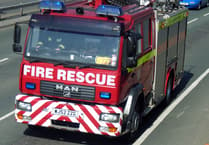PEOPLE have been urged to ‘do their bit’ and only use emergency departments for life threatening conditions.
‘People are being urged to do their bit to support the NHS by using the most appropriate service for their condition and keeping the emergency department for life threatening conditions.
‘Those with family or friends who are ready to be discharged can help by picking them up as soon as they are ready to go home.
‘This frees up the bed for other patients who need them. ‘
There are other ways people can support services.
These include:
Using your local pharmacist for minor conditions such as insect bites, ear ache and skin rashes.
Using NHS 111 – online at https://111.nhs.uk or by phone if you need advice or medical treatment quickly and can’t wait to see your GP.
If you need to be seen by a Minor Injuries or Emergency Department they can book you in.
Getting vaccinated against Covid-19. Have both jabs and your booster if you are eligible
Staying away from hospitals if you have Covid symptoms or diarrhoea and vomiting
Using the HANDi paediatric app for advice on common childhood illnesses and when to seek help
Dr Anthony Hemsley, the Royal Devon University Healthcare NHS Foundation Trust’s Medical Director - Eastern services said: ‘NHS services across Devon, and particularly our Emergency Departments, are extremely busy today.
‘If you have an urgent health problem which isn’t life-threatening or a minor injury, please call NHS 111 or visit NHS 111 online before visiting an Emergency Department.
‘NHS 111’s trained clinicians will provide you with advice on the best place to receive care, and this will help you to be seen as quickly as possible. If you attend an Emergency Department for anything which is not serious or life-threatening, you are likely to face a long wait.
‘If you have a family member, friend or neighbour who is ready to leave hospital, there are a number of things you can do to support them returning home.
‘This includes helping to organise transport, providing suitable clothing and shoes for them to leave hospital in, and popping some milk and food in their fridge for when they get back.
‘These small actions make a really big difference and help us to make sure that we’re able to see new patients promptly.’





Comments
This article has no comments yet. Be the first to leave a comment.